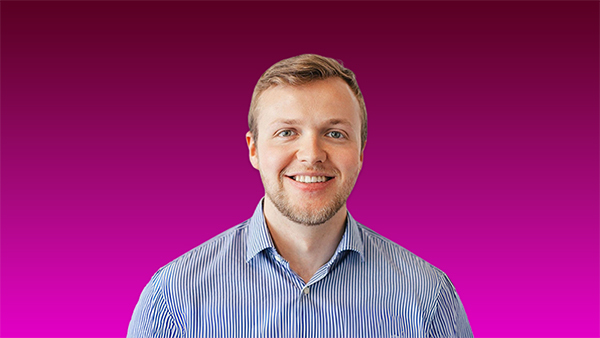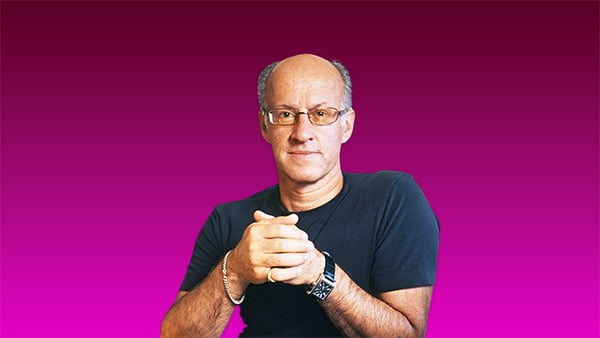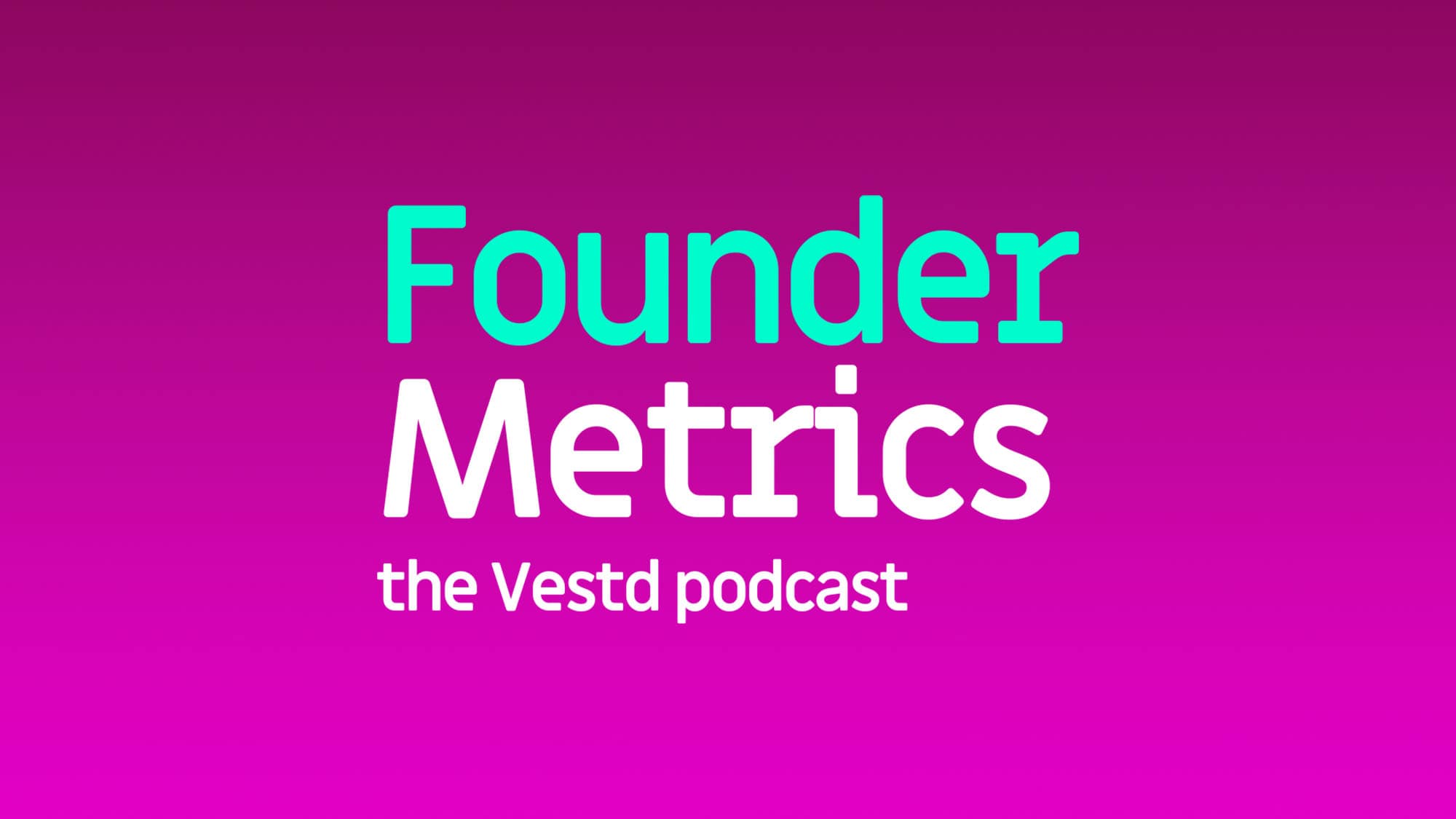FounderMetrics: Roger Saul
This time on FounderMetrics, Vestd founder and CEO Ifty Nasir meets Roger Saul, founder of Mulberry, one of the UK’s most iconic fashion brands.
Manage your equity and shareholders
Share schemes & options
Equity management
Migrate to Vestd
Company valuations
Fundraising
Launch funds, evalute deals & invest
Special Purpose Vehicles (SPV)
Manage your portfolio
Model future scenarios
Powerful tools and five-star support
Employee share schemes
Predictable pricing and no hidden charges
For startups
For scaleups & SMEs
For larger companies
Ideas, insight and tools to help you grow

In this episode of FounderMetrics, Vestd founder and CEO Ifty Nasir talks with Oli Hammond from Fuel Ventures, one of the UK’s most active venture capital firms. Oli shares his unconventional route into VC, starting with a humanities degree and landing at Fuel Ventures after banking and startup experiences.
Check out the main takeaways below, or click here to listen to the full episode!
My route into venture capital has been anything but conventional. I didn't study economics or attend Oxford or Cambridge. I don’t have a background in consulting or private equity. I completed a degree in War Studies at the University of Kent.
I didn’t go to Goldman Sachs or JP Morgan. I started my career at Svenska Handelsbanken, a Swedish bank - a lovely place full of supportive people, but it wasn’t for me.
The environment was too rigid, too static. Wearing a tie was more important than contributing ideas. I knew early on I wouldn’t thrive there, and after about a year, I left - without a clear plan, but with the privilege of living at home and being able to take some risks.
Around that time, I began investing in small ventures through crowdfunding platforms and became fascinated with the startup world.
I had no real knowledge of the venture ecosystem, but I reached out to founders raising on crowdfunding platforms and offered to do anything - grunt work, trench work, whatever they needed.
One of those startups brought me on for six months. The company eventually failed - but what an education. It was a sharp, steep decline, and I witnessed firsthand the pressure of cash flow conversations, last-ditch decisions, and the energy of startup chaos.
My first day involved driving my boss's three-litre Subaru automatic through central London - with his 12-year-old son in the front seat. I'd never driven an automatic before. He gave me a crash course outside Harrods. It was ridiculous. I loved it.
That first taste of startups cemented my path. I wanted to stay in this world. After being let go, I joined SyndicateRoom, one of the UK's top crowdfunding platforms at the time. I started as an analyst and eventually led the team.
Over time, the business evolved into a co-investment fund, a move with which I wholeheartedly agreed. Crowdfunding had its merits, but also real limitations - especially at scale. Pivoting to co-investment gave us more rigour and flexibility.
I always describe myself as a trench worker. I’m not someone who parachutes in as a Chief of Staff or a CRO. I just get on with what needs to be done and learn quickly. That mindset’s served me well, whether it’s building teams, evaluating companies, or managing portfolio challenges.
Eventually, that journey brought me to Fuel Ventures.
At Fuel, we back founders early - pre-seed and seed. Our model is built around diversification, with 30–40 pre-seed investments and 10–15 seed-stage deals made annually. It’s high volume, high velocity, and all about access.
But our philosophy is simple: we don’t believe we can outsmart the maths of venture, but we can work with it. And if we can build a diversified portfolio with exceptional founders, that’s how we generate the returns we need.
We score our deals using IPEV-compliant scorecards that consider factors such as founder experience, prior exits, leadership roles, and industry expertise. However, while metrics matter, the key factor remains the team.
A great business solving a big problem with the wrong team won’t get funded. A less obvious idea with an exceptional team? That’s a conversation we’ll have.
Cash efficiency is another important lens. We ask: Has the company reached a reasonable revenue milestone while managing its burn rate? Are they focused on customer acquisition, conversions, and clear goals?
We’re not afraid of founders taking aggressive bets with runway, as long as they’re hitting growth milestones. But if a company is seven months from running out of cash and missing its targets, we’ll recommend a pullback and hyper-focus on the few things that move the needle.
Ultimately, though, success comes down to the founder’s mindset. Founders need to know what "good" looks like. They also need to be honest - especially when things aren't going well.
Founders often think of VCs as gatekeepers or adversaries. But we’re running businesses too. We’re managing investor expectations, compliance, reporting, and fundraising.
Our customers are different, but the pressure is similar. If we don’t generate returns, we won’t raise the next fund. And that means we can’t support future founders.
So, when we pass on a deal or ask hard questions, it’s not about playing favourites. It’s about what the data tells us. Our model is designed to support the best companies across a diverse and extensive portfolio.
That means we’re not writing £100m cheques into late-stage rounds. We’re writing smaller tickets earlier and helping shape businesses from the ground up. Later-stage funds have different risk strategies - they can afford to step in, change leadership, and micromanage. We can't (and shouldn't).
That’s also why we no longer take board seats. We used to, but with the size of our portfolio, it became a bottleneck. We're still deeply engaged, with monthly founder calls, check-ins, and strategic support, but we've stepped back from directorships to give our companies space to grow without unnecessary administration. It helps them move faster.
Success in venture is measured across multiple axes, but in pure terms, a fund needs to aim for at least a 3x return. Whether that's £5 million or £50 million, the principle remains.
That’s why we look for businesses with potential to exit in the hundreds of millions, ideally billions. Not every company will achieve this, of course, but you can structure the portfolio to increase the probability.
There’s no single blueprint - different VCs have different theses. Some only back repeat founders. Others back complete outsiders to an industry, looking for disruptive thinking. We’re somewhere in between.
Most of our founders are first-time entrepreneurs or have had solid, if not VC-style, exits. We’re interested in founders with drive, self-awareness, and the ability to execute - whether they’ve been there before or not.
Right now, we’re in a strong position. We’re one of the UK’s most active VC firms and have built a respected pre-seed fund. However, our vision is to become truly multi-stage - not by reaching Series D, but by supporting our companies through Series A.
That way, when the market realises a company is exceptional, we’re already in the deal - and have been from the start. We want to win deals before they become deals.
We don’t need to be the lead or the sole investor, but we want the ability to double down at key moments. That’s how we’ll add long-term value. We dream in long-term arcs, but we operate day to day in the short to medium term, because that’s where execution happens.
I’ve worked with enough founders to know it’s not just about skills - it’s a mentality. Being a founder is hard. It’s lonely. Most of your time is spent solving problems, because no one comes to you when things are going well. Co-founder breakups happen. Cash gets tight. Stress builds. And yet the best founders still move forward.
Could I do it? Maybe - but not alone. I’d need a co-founder.
Luckily, I don’t have to make that leap. I’ve got the best job in the world. I get to find the smartest people in the room and convince them to take our money. That’s the core of it. And I’m good at it. I know how to back people who can build something meaningful - and help them do it.
You'll find Oli’s episode and more on all popular podcast platforms. Or watch the interview in full on YouTube - don't forget to like and subscribe!

This time on FounderMetrics, Vestd founder and CEO Ifty Nasir meets Roger Saul, founder of Mulberry, one of the UK’s most iconic fashion brands.

FounderMetrics: a podcast by Vestd. Join Ifty Nasir as he uncovers the factors that forge success and those that spell disaster.

Happy International Leadership Week! To celebrate, we're launching a brand new series, The Business Pharmacy, where founders of successful businesses...